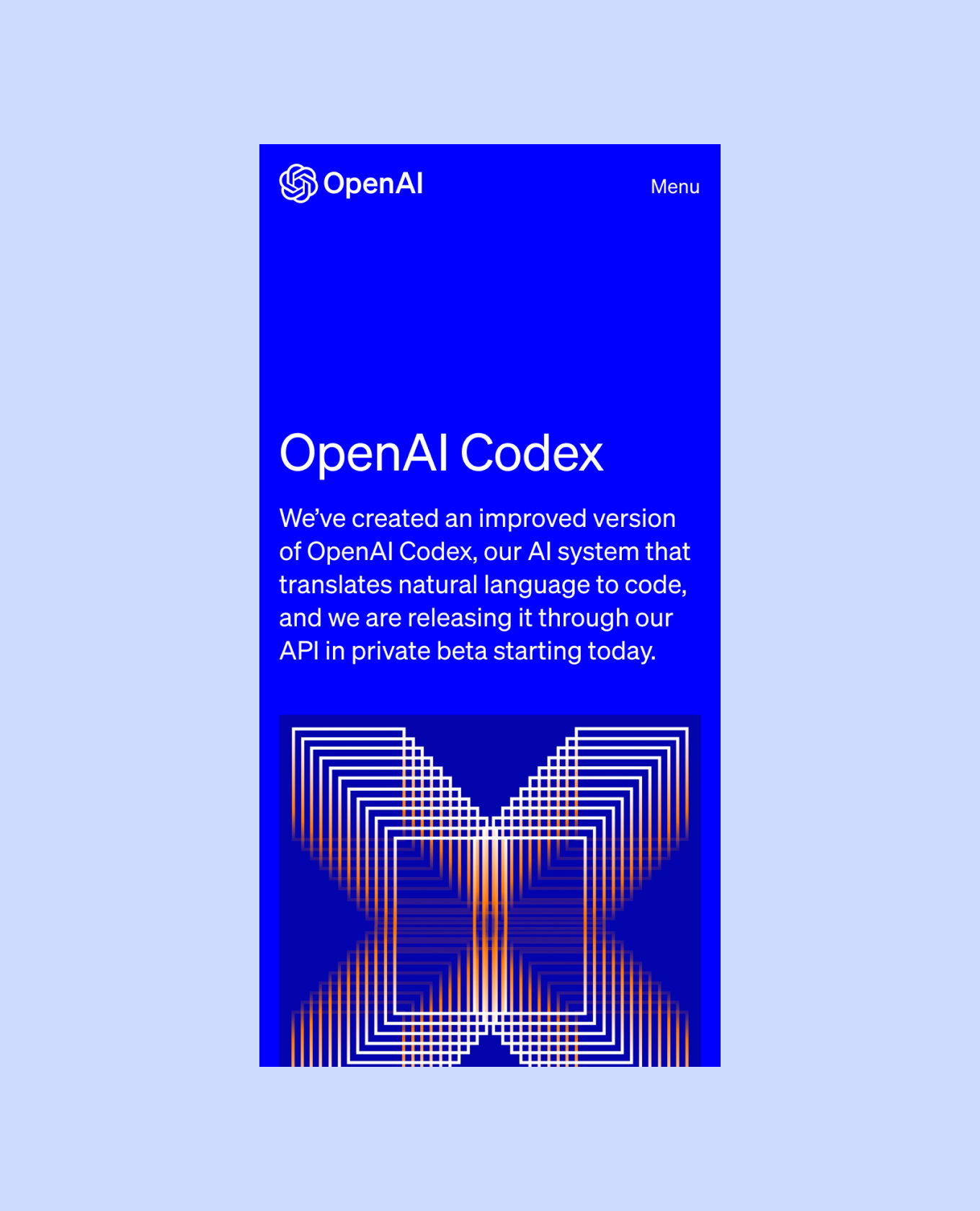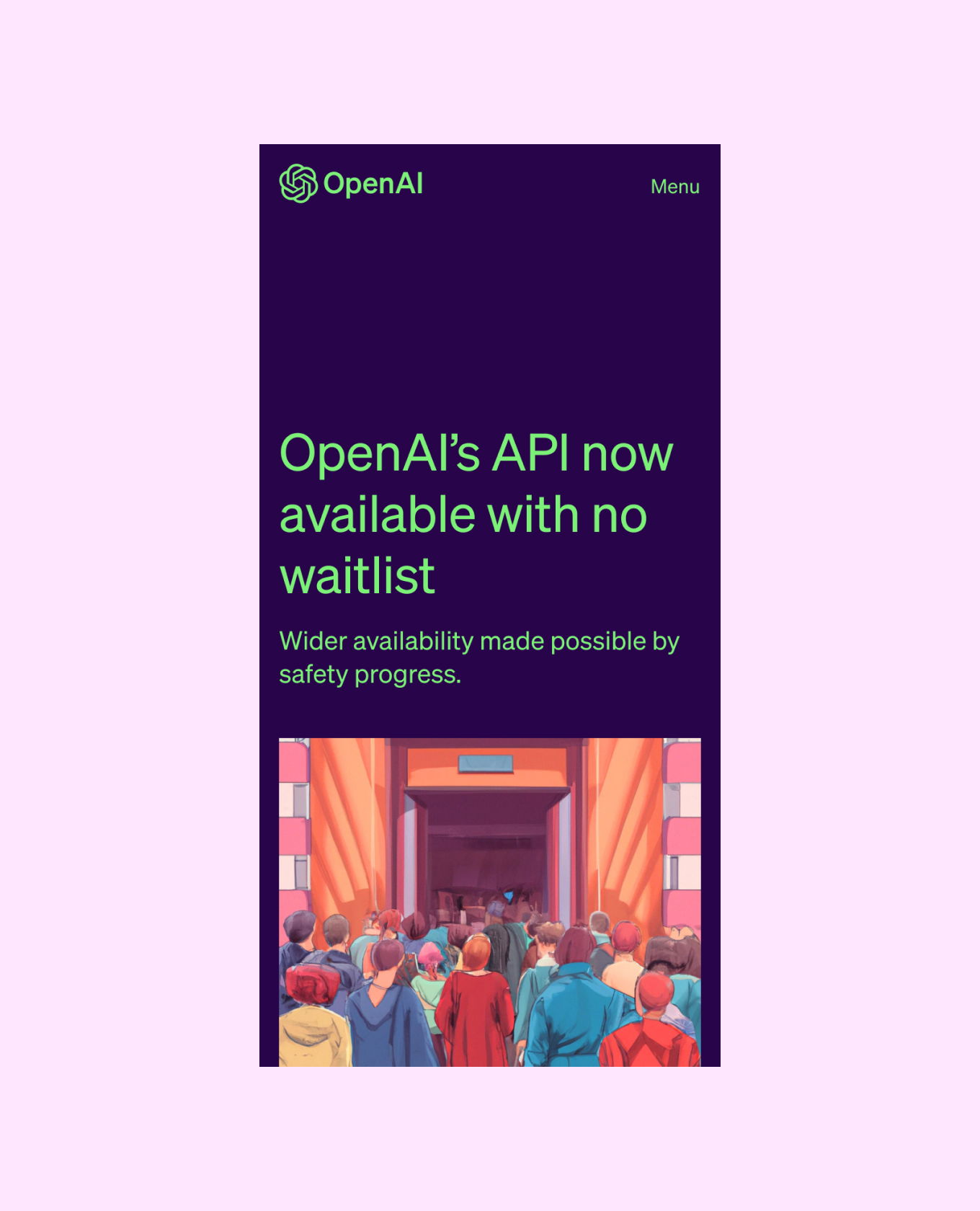OpenAI
Demystifying artificial intelligence
OpenAI is a research and deployment company, whose mission is to ensure that Artificial Intelligence (AI) benefits all of humanity. With breakthrough products like DALL-E and ChatGPT—image and text generators—its work reimagines how people and society can collaborate with technology. Through the development of its API, OpenAI enables the safe deployment of these products to a host of enterprise customers, driving innovation across industries. At the same time, it creates open-source tools that inspire and educate everyday users about the potential of the technology.
In tandem with milestone product launches, OpenAI asked AREA 17 to help craft a refreshed visual identity and website to engage users, host its free and commercial products, and demonstrate its steadfast commitment to safety.
OpenAI is made with Twill, our open-source CMS for Laravel.
Standing by its original core mission—to ensure that AI advances responsibly and for the benefit of all humanity—OpenAI shifted from a research-oriented non-profit to a public-facing company with commercial products.
As its audience expanded from a niche scientific community to the general public, OpenAI needed a holistic strategy to tell audiences who it is, what it does, and why it matters to society. The website refines the main content destinations—corporate communication, research, and products—to ensure that the platform meets the needs of all its distinct user groups.
OpenAI has published extensive and world-renowned research on machine learning technology and safe AI. The redesigned website is focused on making OpenAI’s research accessible to general audiences and AI stakeholders.
We anthologized the company’s essential work in an index that helps guide users through OpenAI’s research, algorithms, and methodology. The index has an improved filtering system for users to explore research topics and abstracts of each published research paper, in addition to the long-form source.
The website also provides critical product information to software developers and enterprise customers interested in deploying OpenAI’s products to build next-generation businesses and applications. The site lets these users interact with OpenAI’s working prototypes, using minimalist but engaging design elements to help people learn about, test, and access their products.
The site introduces a new visual identity that reflects a bold and fast-evolving organization, driving forward the visual language of AI. The system leverages a strong black-and-white core palette and a secondary palette made up of highly saturated colors, inspired by the additive color system seen in early computers. The full-color range allows editors to select one of thirty themes to tell their story, reinforcing the creativity and uniqueness of everything they release.
To emphasize the human-technological collaboration at the core of AI, the site leverages two core types of brand imagery: generative AI art and people-centered photography. The photography uses warm tones and shallow depth of field to show, not tell, the story of the people behind the company.
We also introduced serif and sans-serif typography to create continuity in the site and reflect the gravitas of OpenAI’s mission. The data visualization system takes a minimal approach, leaving sufficient room for users to interpret and synthesize data.
In alignment with OpenAI’s commitment to public access, AREA 17’s open-source Twill CMS powers the new platform. Twill simultaneously responds to the needs of designers, engineers, and editorial teams, who work in concert to tell the OpenAI story and serve its core products.
When the design system meets the CMS, OpenAI’s short-form content takes on new life. There’s a clear distinction between developer content and content for the general public, yet no one audience feels disparate from the global content ecosystem.
Advanced content filtering provides an easy drilldown into specific topics and clear content hierarchies help draw attention to key statistics that communicate the magnitude of OpenAI’s investment in training their models.




























